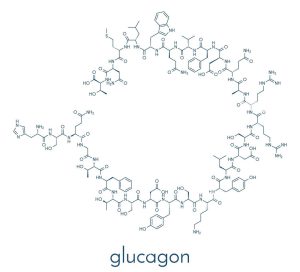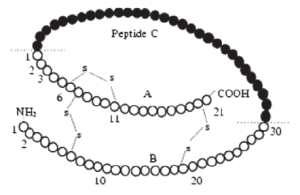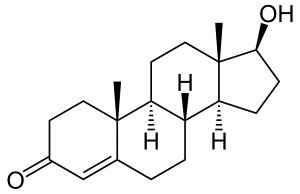Most of us are not maximizing the power of fat burning hormones, which is the single biggest mistake we are making when trying to lose weight.
Crash diets are ineffective for long-term weight loss because they disrupt the body’s fat burning hormones, causing the body to stop losing weight after the initial loss of water weight. Hormones, to put it bluntly, can cause and sustain weight gain.
Hormones are crucial in regulating all essential functions because they act as chemical messengers that relay messages from the brain to the rest of the body. Since hormones play a role in both weight gain and loss, it’s important to utilize fat burning hormones to accelerate weight loss.
Obviously, a hormonal imbalance can interfere with numerous vital processes, the most obvious of which is weight gain. These fat-burning hormones require optimal nutrition from the food we eat, and a lack of some nutrients can have a devastating effect on the hormones required for weight loss.
In this post, we highlight nine fat burning hormones while revealing incredible strategies for stimulating your body’s fat burning hormones for weight loss.
What are Fat Burning Hormones?
Fat burning hormones perform a host of bodily functions including:
- regulating your metabolism,
- maintaining a balance in your blood sugar levels,
- minimizing fat storage,
- promoting the burning of fat stores, and
- regulating your appetite.
The nine key fat burning hormones you should be aware of are:
#1. Adiponectin
Adiponectin is a fat burning hormone that is generated and released by fat cells or adipose tissue. When released, adiponectin will stimulate insulin sensitivity. Adiponectin
forces insulin to instruct cells to absorb glucose from the blood rather than storing it thereby preventing or limiting fat storage and weight gain.
#2. Cholecystokinin (CCK)
CCK stands for the hormone cholecystokinin, which is generated in I-cells lining the duodenum. CCK aids in the digestion of food and also helps to reduce hunger pangs.
In addition to this, CCK hormone promotes the production of bile and greatly slows down the rate at which food empties in your stomach. The increased bile production will shrink stored fat, making them more digestible by enzymes. It aids digestion as well, so you can eat more comfortably.
To top it all off, CCK helps you feel full and greatly reduces your appetite.
#3. Glucagon
Glucagon is a hormone that controls blood sugar levels by releasing sugar from glycogen stores. Glucagon is responsible for turning glycogen back into sugar, while insulin is responsible for storing sugar as fat. When the body’s glycogen stores are low, it turns to its fat reserves for fuel.

#4. Glucagon-like peptide-1 (GLP-1)
The Glucagon-like peptide 1 or GLP-1 hormone is an incretin. If you have sufficient amounts of GLP-1 hormone in your body it will help to reduce your appetite. You will be less tempted to chow on snacks in between your daily meals.
#5. Human Growth Hormone (HGH)
Without a doubt the human growth hormone, or HGH, is one hormone that aids in your growth and overall development. However, HGH can also contribute to fat storage and weight gain if lacking in sufficient amounts in your body.
Obese people have been found to have very low levels of HGH hormone. Increased fat storage (especially in the abdominal region), an increased risk of developing insulin resistance, elevated triglyceride cholesterol, and decreased HDL (or good) cholesterol have all been linked to inadequate levels of HGH hormone. Apart from losing weight, HGH hormone can also keep your skin from sagging and wrinkling.
#6. Insulin
The liver secretes the fat-burning hormone known as insulin-like growth factor or simply IGF in response to elevated levels of human growth hormone in the blood. It does this by breaking down glycogen and fatty acids already present in the body to release energy.

#7. Leptin
Leptin is the “fullness” hormone, which tells the brain that the body has had enough to eat. Normally, leptin and ghrelin (the hunger hormone) work together to keep things in check, with ghrelin levels going up only when more fuel is required and leptin signaling when the body has what it needs.
However, when leptin function declines, leptin stops communicating with the brain, and the body continues to store excess calories because it does not know when to stop eating.
A sluggish metabolism and ghrelin elevation are both symptoms of leptin resistance. Not only do these prevent weight loss, but they also increase the risk of gaining weight with every meal.
Additionally, leptin encourages thermogenesis via the breakdown of fat stores. The thyroid, growth hormone, and adrenal glands are all under the control of this hormone. Based on this information, it is reasonable to conclude that leptin impairment contributes to food cravings, overeating, and fat storage.
Being leptin resistant makes it hard to lose weight because the body is constantly expecting food despite having plenty of reserves. Leptin resistance can be influenced by free radicals, high cortisol (stress hormone) levels and inconsistent dieting.
#8. Peptide YY (PYY)
Peptide YY or PYY is a hormone secreted by the gastrointestinal tract that acts as a satiety signal, causing a reduction in the rate of digestion and an improvement in the body’s ability to absorb nutrients from the food consumed. PYY also aids weight loss by suppressing hunger.
#9. Testosterone
Low testosterone levels are often linked to fatigue, weakness, lethargy, increased fat mass and weight gain. Testosterone also encourages the development of lean skeletal muscle mass, which is essential for a healthy metabolism and weight maintenance.

5 Steps to Activate Fat Loss Hormones
Now that you have a fair idea of the fat burning hormones in your body and how they help to minimize the accumulation of fat mass, the next thing you need to know are the five simple steps to easily activate fat loss hormones.
STOP Consuming ALL Sugar
Insulin spikes inhibit the fat-burning effects of a number of hormones, including your human growth hormone (HGH). However, with less sugar in your daily diet, your growth hormone increases and your blood sugar levels are better maintained.
Eat A Lot Of Vegetables With Beans
If you want to get your body to release more leptin, eating foods high in antioxidants is a good place to start. Leafy green vegetables are rich in antioxidants, as well as foods like bananas, pomegranates, pumpkins, kiwis, avocados, carrots, garlic, mangoes, blueberries, apples, turmeric, and kidney beans.
All the foods mentioned greatly promote the release of leptin hormone that helps in regulating hunger.
Eat more low-GI foods because your body will not experience insulin spikes and will have more time to use them. Some examples of low-GI foods that are also low in calories are almonds, broccoli, cheese, chickpeas, cucumber, dal, eggs, lettuce, lentils, oatmeal, paneer, peanuts, and paneer.
Also, note that the adiponectin, leptin, and the human growth hormone are all stimulated by a diet high in protein. Beans is a plant-based food that is rich in protein and will therefore boost your HGH, leptin and adiponectin hormone levels.

Eat Less And Stick To A Tight Eating Schedule
You should reduce your caloric intake and maintain a strict eating schedule. Note that refined carbohydrates, like sugar, flood the body with energy without providing any nutritional benefit, causing a decrease in HGH and hindering the activity of satiety hormones like leptin.
Add Some Light Weight Training
All fat burning hormones are at their most effective when you exercise regularly. You should spend at least 40 minutes a day exercising and this should be done five days a week for optimal fat burning effects.
Engage in Juice Fasting
Juice fasting helps the body lose weight, cleanse itself of toxins, and function more normally. Juice fasting is a surefire, cost-free method of increasing human growth hormone because, during fasting, HGH surges and causes the breakdown of stored fat for energy rather than skeletal muscle or protein. This method of weight loss targets excess fat stores directly while sparing valuable lean muscle mass.

In Conclusion
The state of your health depends on your hormones. In order for your body to operate at its best, you need them to be available in your body and in sufficient amounts.
Conditions such as obesity, diabetes, and cardiovascular disease may all be made more likely by hormonal imbalances.
Although you cannot do much about the effects of aging and other naturally occurring factors on your hormones, there are some things you can do to keep your levels in check.
Improve your hormonal health by eating well, working out frequently, fasting, and practicing other health-promoting behaviors like meditation and getting enough sleep.


